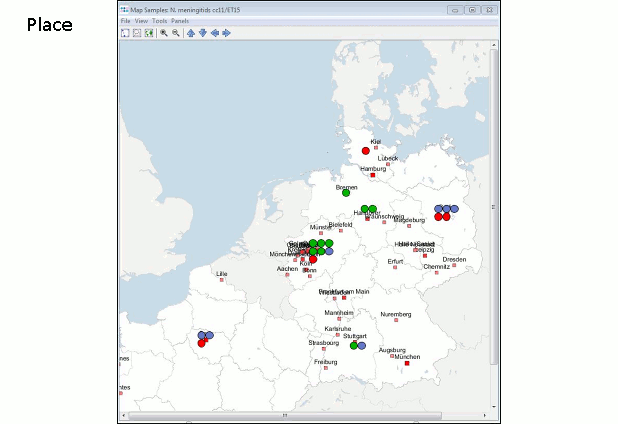Meningococcal disease: identification of a sexually transmitted variant
A study elucidates the mechanisms of the emergence of an outbreak of meningococcal disease in men who have sex with men (MSM).
Meningococcal disease usually affects children and adolescents and causes sepsis and meningitis. An international outbreak was observed among MSM in 2013 in the US and Europe. Vaccine recommendations were launched to protect people at risk in France, Germany, and the USA.
The new study brought together molecular microbiologists at the National Center for Meningococci at the Institut Pasteur (France) and the Universities of Würzburg, Münster, and Greifswald (Germany), as well as epidemiologists at the Robert Koch Institute (Germany) and The Institut de veille sanitaire (France). The researchers studied the whole genomes of the strains isolated during this outbreak and compared the complete set of proteins they expressed to those found in isolates from other patients. The teams showed that the outbreaks in Germany and France were caused by a variant of meningococci that evolved only recently.
"The emergence of this strain shows that meningococci are extremely flexible and vary rapidly change their phenotype allowing efficient adaptation to new conditions" said Ulrich Vogel head of the Reference laboratory for meningococci at the University of Würzburg.
"Of course we are pleased to see that the core genome MLST (cgMLST) approach developed in the framework of the EU PathoNGenTrace project was instrumental in shedding some light on the genomic evolution of this particular clone" Dag Harmsen commented from the University of Münster.
This new variant displayed specific modifications that allowed growth without oxygen. This is an ability consistently found in gonococci, but rarely encountered among meningococci. This finding raised the hypothesis that the new variant adapted its route of transmission to both respiratory droplet – the conventional route of transmission of meningococci - and urogenital transmission. "Although case reports of urogenital infections have been published on several occasions, we provide a mechanistic hypothesis as to how adaptation to the urogenital niche may have developed" Muhamed-Kheir Taha, head of the National Center for meningococci at the Institut Pasteur, explained.
Moreover, the researchers had previously observed isolated urogenital infections of closely related strains on rare occasions. However, the new strain obviously enhanced its ability to multiply in the bloodstream, and thus displayed increased virulence in comparison to the urogenital isolates.
The detailed reconstruction of the evolutionary mechanisms underlying this prominent meningococcal disease outbreak demonstrates the versatility of meningococci and that ongoing surveillance of the disease is essential for flexible adaptation of vaccination strategies.

Reference:
Evolutionary events associated with an outbreak of meningococcal disease in men who have sex with men, PLOS ONE, May 11, 2016


